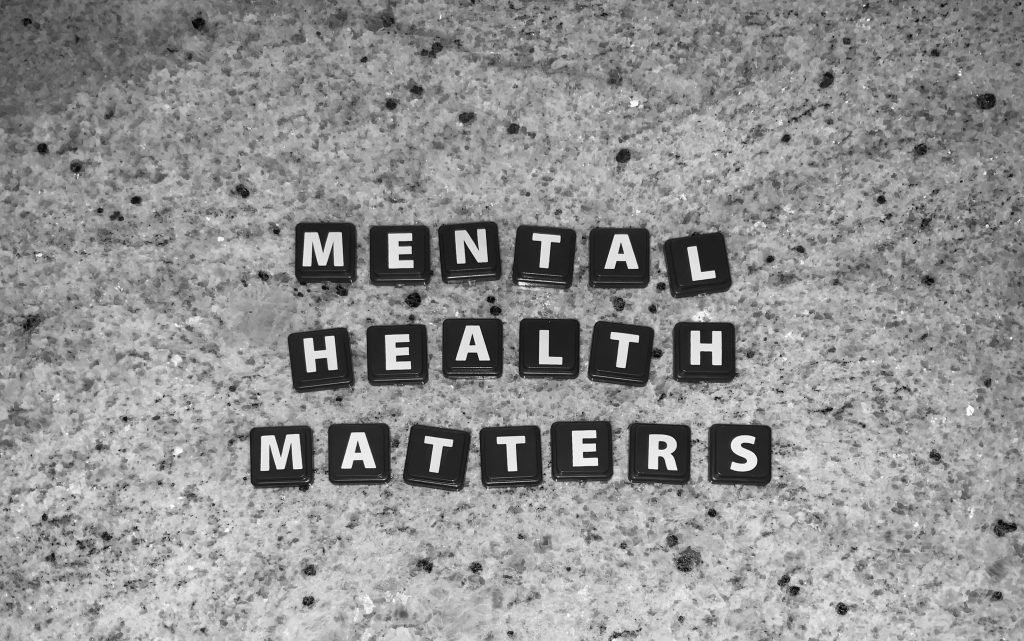
The Damages of Conservatorships and Abusive Relationships on Women’s Mental Health with Dr Lipov
By Cynthia Vera
Though it’s still considered a taboo subject in our society, mental health and its recognition has been at the in the spotlight with notable, accomplished athletics like U.S Olympic gymnast Simone Biles and Grand Slam tennis player Naomi Osoka prioritizing their mental health – signalling a new era of mental health awareness. With the amount of people experiencing mental health conditions rising by 20% between 1993 to 2014, it’s now more important than ever to open up the space for a dialogue on these conditions. It’s important to note that women are affected by this on a larger scale with over a quarter (26%) of young women reporting mental health problems at any given week. Though there are many facets that causes a disruption on our mental stability, conservatorships and abusive relationships are some of the main catalysts of trauma inflicted on women – as seen with the case of Britney Spears.
Dr. Eugene Lipov – a board-certified physician and a pioneer of the Stellate Ganglion Block (SGB) medical procedure, used to treat post-traumatic stress injuries – shares his thoughts on how controlling parental figures, relationships and conservatorships experienced by women are damaging and lead to trauma, anxiety, mental health issues and PTSD.
Conservatorships are court-appointed guardianships granted for individuals deemed incapable of making their own decisions or managing their own finances. Can you explain to us how conservatorships came to be and are there different types of them?
I’m a physician so, I’m not specialized in this area, as this is more of a legal issue. However, it originated from the 1400s defined as “an official entrusted with the power and duty to protect the interests or rights of someone else or something.” Commonly, they are used by family members to help an older adult with medical, mental, and financial responsibilities.
There are 3 types of conservatorships: Limited Conservatorship: guardian has only certain powers. Temporary Conservatorship: Temporary full-on guardian. Full Conservatorship, which is what Britney Spears’s dad has, for example.
The current case of Britney Spears who has been in a conservatorship for over 12 years has highlighted women are more frequently exposed to controlling and abusive behaviors from their parents. Can you speak about the damage of abusive relationships between parents and daughters and why these types of relationships lead to conservatorships?
As a child, you depend on the parent. Unfortunately, parents in abusive states seem to not do what is best for the child. This erodes the trust the child has which can lead to psychiatric trauma. In Britney’s case, she has a history of depression and other forms of trauma, so this can have an even deeper effect. We really don’t know how traumatized she was. In a lot of examples, women who have been sexually abused act sexually explicit.
The damages of abusive relationships, in general, can affect a woman’s self-esteem, trust, family ties, and could affect their future relationships and actions later in life. If you can’t trust a parent, how can you trust somebody else?

There is a lot of dark history ripe with abuse allegations with the legal process. Whilst a “conservatee” doesn’t necessarily lose all their rights, the autonomy stripped away from them can have long-lasting effects – especially in women. What can you tell us about the trauma caused by relationships with power imbalances?
For women, much like Britney, who does not have any say over her life which further damages her self-esteem, preventing her from healing from whatever psychiatric issues she may already be having. Even though she has built her career with her talent and success, the conservatorship makes her feel more incapable than she actually is.
For women, guardianships and conversations often mean basic rights to their reproductive system are subjected to the law from the forced sterilization of immigrant women in detention centers to women with disabilities. How can we ensure women are safe from such control?
This is an extension of the women’s right movement and should be addressed in the same fashion. It is a legal issue stemming from the government and the laws in which countries our founded on. However, it is also a societal issue stemming from the way women are viewed and the stereotypes associated with them. Sexism is very much still an issue, especially in Third-World countries. And right now, the USA’s behavior doesn’t seem very different from Third-World countries, in this case at least. To ensure safety for women in this case, it really is a government issue, specifically the laws created. These laws need to be amended and changed to match the current times in which women are equal and capable to function in society on their own.
Dr. Lipov, you’re a pioneer of the Stellate Ganglion Block (SGB) medical procedure which is used to treat post-traumatic stress injuries with a combination of psychotherapy. Can you tell us how you started with SGB and how it has evolved over the years?
First, I had a patient that had hot flashes that I sent to my brother, and he came up with the idea that SGB should take away hot flashes because it has been used to take away arm sweats, so I tried the injection and had a lot of success with this along with criticism from the Chicago Tribune because I didn’t know how SGB fully worked at the time. As I was trying to determine the mechanism of SGB on hot flashes, I came across a report on a patient from Finland doing something similar to SGB to treat hand sweats and they also found out it treated the patients PTSD. And that is how I got interested in that. The first patient was treated with SGB for PTSD was 2006 in Chicago. He was a victim of a violent crime, and the SGB was successful. The first publication then was in 2008. Since then, it has been replicated by numerous medical institutions and our protocol has been evolving and is increasing the efficacy of the approach.

Seeking help for mental health can be quite overwhelming for several reasons. From a lack of knowledge in identifying features of mental illnesses to the lack of accessing treatment for many for marginalized communities, and the overall stigma around mental health. This can all lead to treatment avoidance or a delay in getting individuals the help they might need. What can people do to start recognizing features of trauma and begin their journey of healing?
I think society needs to prioritize mental health and work to continue eliminating the stigma that goes along with PTS. I believe that awareness and knowledge is power, so educating yourself on what PTS and mental health is will allow people to understand more of what is going on either with themselves or people around them.
I believe stigma comes from ignorance and ignorance comes from a lack of knowledge surrounding a certain subject. Also, there is a website called “doihaveptsd.org” where someone can sign up and take the free PCL test and see if they have signs of PTSD.
Dr. Eugene Lipov is a board-certified physician with over 15 years of experience in Anaesthesiology and Pain Management and Chief Medical Officer at the Stella Centre, a company focusing on The Stellate Ganglion Block (SGB) treatment to provide relief from symptoms like continual sleep disturbance, surges of anxiety, irritability, and PTSD. Head over to the Stella Centre to find out more about their services.





